Bhagat Singh, 28 september 1907 March 23, 1931 was an Indian freedom fighter, considered to be one of the most influential revolutionaries of the Indian independence movement. He is often referred to as Shaheed Bhagat Singh. Born into a Jat Sikh family which had previously been involved in revolutionary activities againstthe British Raj Singh as a teenager, was an atheist and had studied European revolutionary movements. He was also attracted to anarchism and Marxist ideologies. He was involved in a number of revolutionary organizations.
Bhagat Singh was born into a Sandhu Jatt family Sardar Kishan Singh Sandhu and Vidyavati in a village in Faisalabad district of Punjab today Pakistan. Lyallpur is now known as Lyallpur. His ancestral village is Khatkar Kalan village near Banga in Nawanshahr District of Punjab.The District has recently been renamed as Shaheed Bhagat Singh Nagar. Singh has given the name of Bhagat means "dedication".
The British government has set up a commission under Sir John Simon to report on the current political situation in India in 1928. The Indian political parties boycotted the commission because it does not contain a single Indian as its member and it was met with protests across the country.
When the Commission visited Lahore 30 October 1928.15. 1929 April, 'Lahore Bomb Factory "discovered by the Lahore police, and other members of the HSRA werearrested, of whom seven were informants to help the police to connect Bhagat Singh in the murder of JP Saunders.Bhagat Singh, Rajguru and Sukhdev were charged with murder.
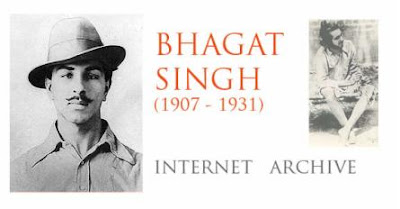
Bhagat Singh was known for his appreciation of martyrdom. His mentor as a young boy was Karta Singh Sarabha. Singh is himself considered a martyr for acting to avenge the killing of Lala Lajpat Rai. In the leaflet he threw in the Central Assembly 9 April 1929, he declared that it is easy to kill people, but you can not kill ideas.

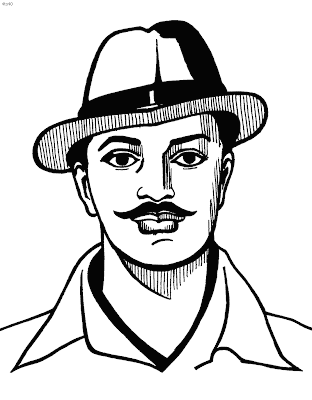
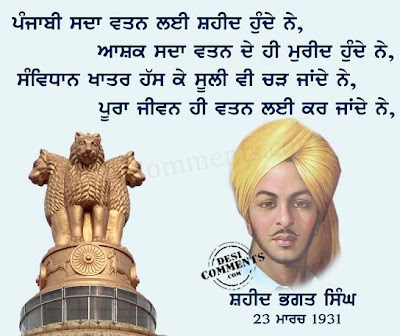
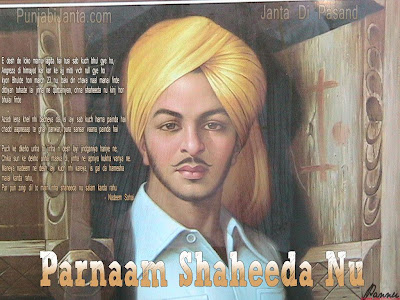
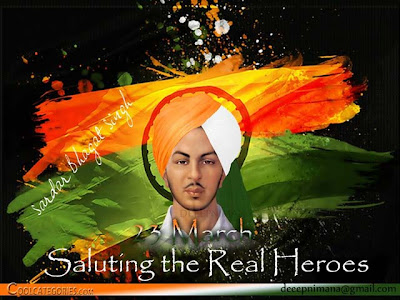






0 comments:
Post a Comment